Parmesan Crusted Bread with a Summer Burrata Tomato Salad
INGREDIENTS
- ~14 sourdough bread slices
- 1¼ cups/300 grams parmesan/cheddar cheese, grated
- Olive oil for drizzling
- 2 burrata
- Fresh mozzarella, cut into smaller pieces
- Balsamic glaze
- Fresh basil leaves for garnish
Tomato salad:
- 1 cup/200 grams red cherry tomatoes
- ¾ cup/150 grams orange cherry tomatoes
- ¾ cup/150 grams yellow cherry tomatoes
- ½ teaspoon salt
- Pinch of ground black pepper
- 2 garlic cloves, minced
- A handful of basil, chopped
- ¼ cup olive oil
INSTRUCTIONS
- Preheat the oven to 410°F (210°C) in convection mode.
- Spread grated Kashkaval cheese on a baking sheet lined with parchment paper. Place the bread slices on the cheese, generously drizzle olive oil over the bread slices, and bake for about 10 minutes or until the bread and cheese are golden brown.
- Remove from the oven and set aside to cool.
- For the tomato salad, quarter the cherry tomatoes, place them in a bowl, and add salt, ground black pepper, minced garlic, chopped basil, and olive oil. Mix well.
- Open the burrata in a bowl.
- Arrange the bread slices on a serving plate with the cheese crust facing upwards. Place a spoonful of burrata on each bread slice, add the tomato salad, drizzle with reduced balsamic vinegar, and garnish with fresh basil leaves. Serve.
- Tip: You can prepare the bread and tomato salad in the afternoon and assemble the dish in the evening.
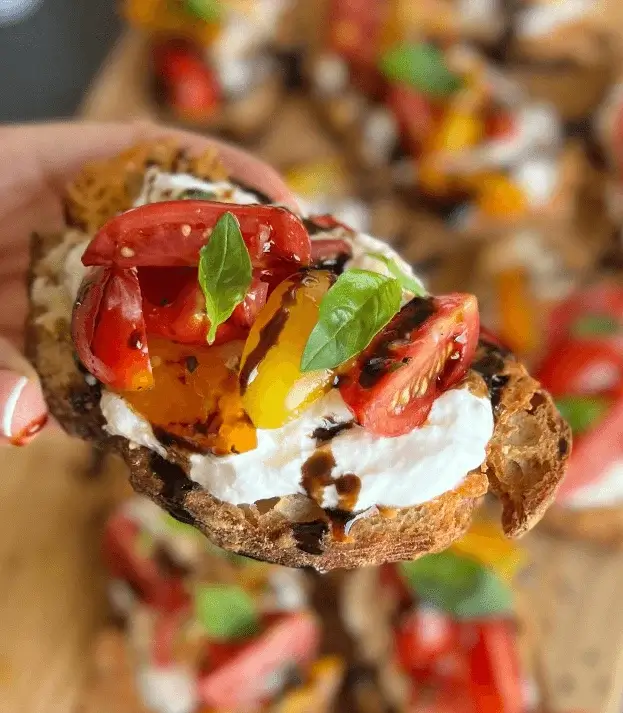
FAQ
Can I use a different type of bread instead of sourdough?
When considering alternatives to sourdough for this recipe, opt for rustic Italian breads like ciabatta or focaccia. These breads offer a sturdy texture and absorb flavors well. Avoid overly soft or dense breads to maintain the balance of textures and flavors in the dish. Experiment with different varieties to find one that complements the rich flavors of the cheese, creamy burrata, and vibrant tomato salad while maintaining a delightful crunch after baking.
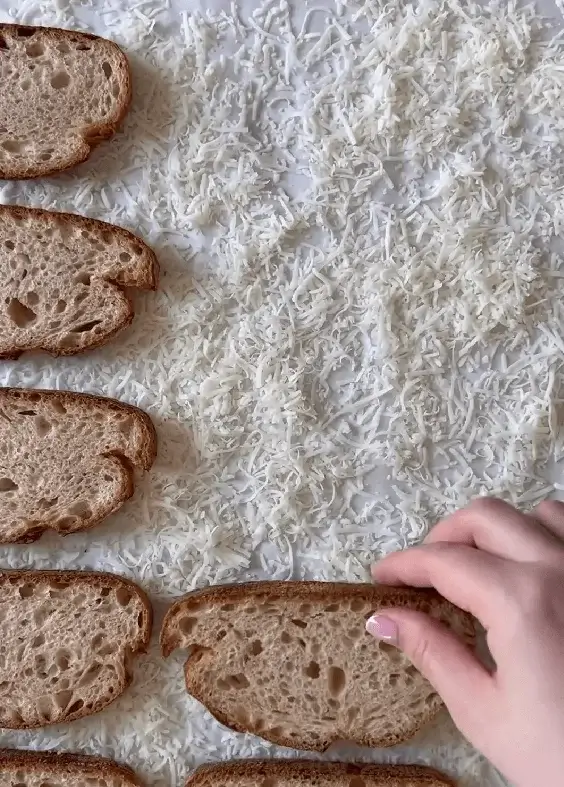
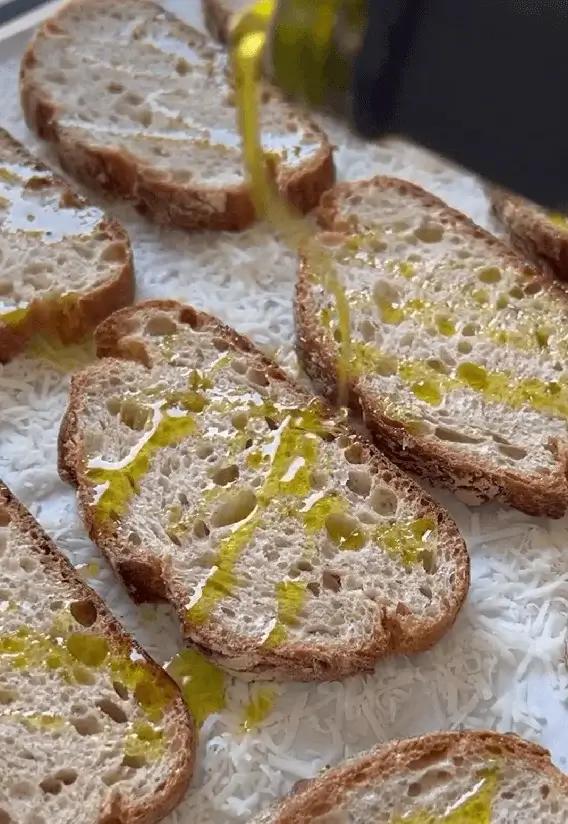
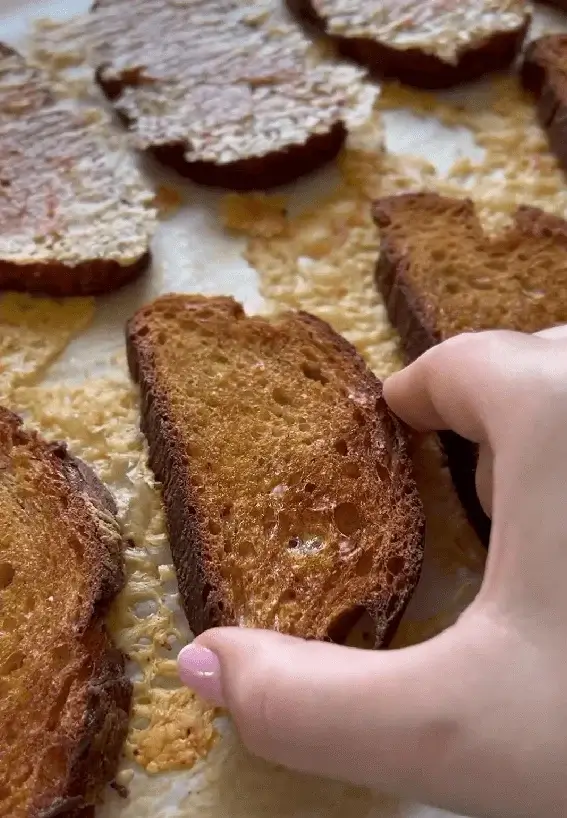
What is the best way to store any leftover burrata?
To store leftover burrata, place it in an airtight container and cover it with fresh water to maintain its freshness. Store it in the refrigerator and consume it within a day or two for the best taste and texture. Avoid storing burrata in the freezer as it will compromise its creamy consistency. Before serving leftover burrata, let it come to room temperature for about 15-20 minutes to enhance its flavors and creaminess. Enjoy it as a topping for salads or spread on fresh bread for a delicious snack.
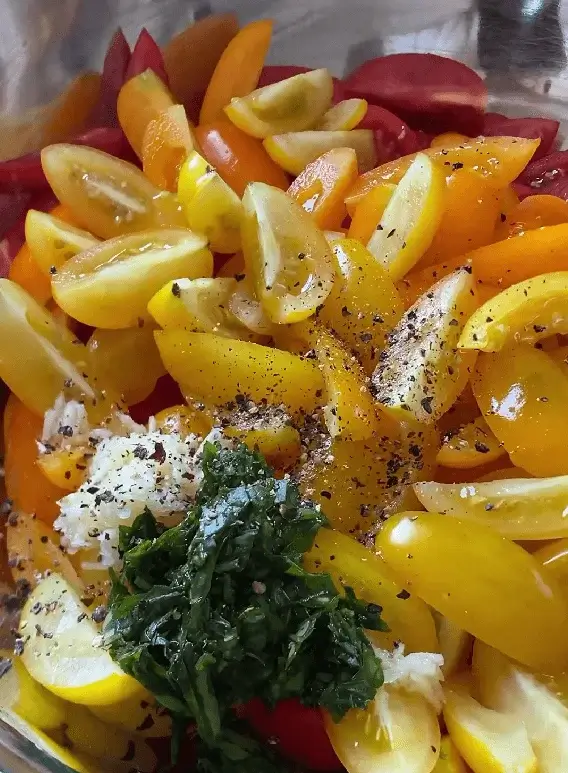
How should I adjust the oven temperature if I’m not using convection mode?
If your oven does not have a convection mode, adjust the temperature accordingly for this recipe. Typically, you would increase the temperature by about 25 degrees Fahrenheit (about 15 degrees Celsius) when using conventional baking mode. Therefore, instead of setting the oven to 410°F (210°C) in convection mode, set it to approximately 435°F (225°C) in conventional mode. Keep an eye on the bread and cheese during baking to ensure they reach a golden brown color and crispy texture similar to what convection mode would achieve.
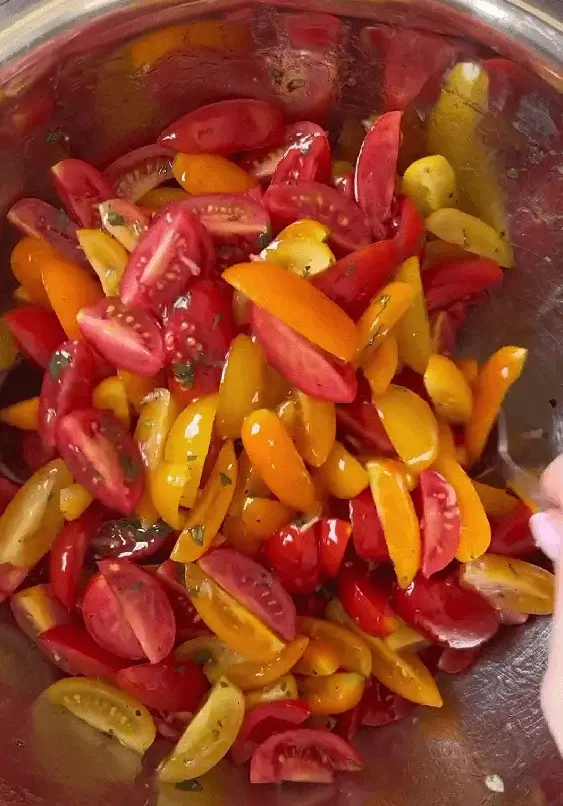
How far in advance can I prepare the tomato salad?
You can prepare the tomato salad up to a few hours in advance for optimal freshness and flavor. Quarter the cherry tomatoes and mix them with salt, pepper, minced garlic, chopped basil, and olive oil. Store the salad in an airtight container in the refrigerator until ready to serve. Avoid adding the basil until just before serving to prevent wilting. Bringing the salad to room temperature for a few minutes before serving can help enhance its flavors.
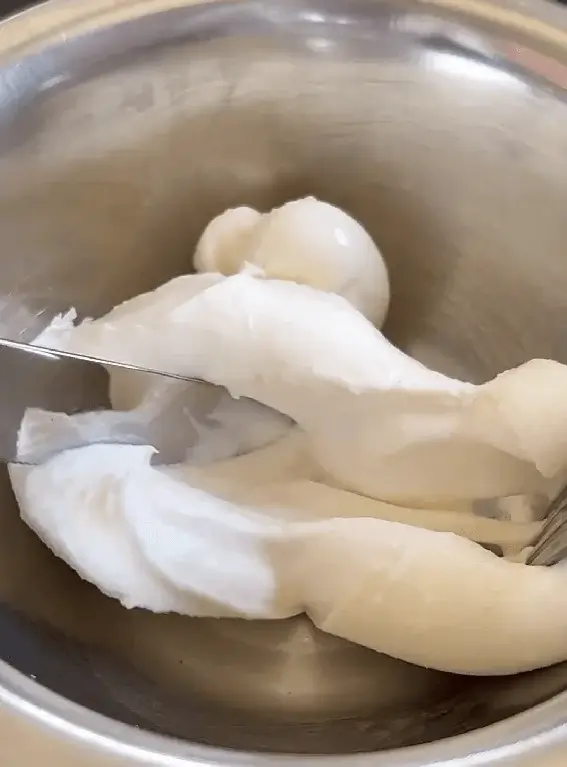
How to ensure the parmesan crusted bread stays crispy after baking
To ensure the parmesan crusted bread slices stay crispy after baking, follow these tips: First, choose a sturdy bread like sourdough or ciabatta, which holds up well to toppings and baking. Second, spread a thin layer of olive oil on the bread slices before adding toppings; this creates a barrier that helps retain crispness. Next, bake the bread slices at a high temperature (around 410°F or 210°C) until they are golden brown and the cheese is melted and bubbly. Finally, allow the bruschetta to cool slightly on a wire rack before serving to prevent condensation from softening the bread.

Can this parmesan crusted bread gluten free?
Yes, this recipe parmesan crusted bread can be made gluten free with a few adjustments. Use gluten-free artisanal sourdough bread or a gluten-free ciabatta for the base. Ensure all other ingredients, including the Kashkaval or cheddar cheese, burrata, mozzarella, and balsamic glaze, are gluten-free certified. Verify that the reduced balsamic vinegar is also gluten-free, as some brands may contain gluten additives. Prepare the tomato salad using gluten-free ingredients and herbs. Follow the same baking instructions, adjusting the temperature and time as needed for gluten-free bread. With these substitutions, you can enjoy a delicious gluten-free version of this bruschetta-inspired dish.
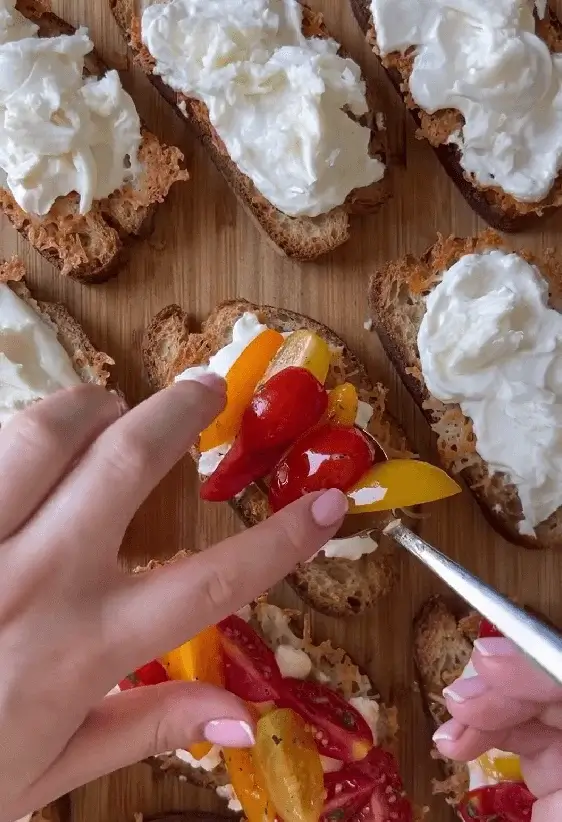
What is the best way to serve this dish as an appetizer for a party?
To serve this dish as an appetizer for a party, arrange the prepared bruschetta on a large serving platter. Ensure each slice showcases the crispy cheese crust and creamy burrata topping. Garnish generously with the tomato salad, drizzle with the balsamic glaze, and scatter fresh basil leaves for a vibrant presentation. Serve the bruschetta immediately to preserve its texture and flavors. Consider pairing it with a light white wine or sparkling beverage to complement the dish’s Mediterranean flavors. This appetizer not only looks impressive but also offers a delicious blend of textures and tastes that will delight your guests.

How do I make my own balsamic glaze if I don’t have any?
To make your own balsamic glaze, start with balsamic vinegar and a sweetener like honey or brown sugar. Pour about 1 cup of balsamic vinegar into a small saucepan and add 2-3 tablespoons of honey or brown sugar for sweetness. Bring the mixture to a boil over medium heat, then reduce the heat to a simmer. Stir occasionally and cook for about 10-15 minutes, or until the vinegar has thickened and reduced by half. Remove from heat and let it cool for a few minutes before using. The glaze will thicken further as it cools. Drizzle over dishes like salads, meats, or desserts for a sweet and tangy flavor.

What are some good substitutions for fresh mozzarella?
For a substitution for fresh mozzarella in this recipe, consider using buffalo mozzarella, which offers a similar creamy texture and mild flavor. Alternatively, you can use burrata, which is already featured in the recipe and provides a richer, creamier alternative. If seeking a non-dairy option, try using firm tofu or a vegan mozzarella-style cheese. These alternatives can maintain the dish’s intended texture and complement the flavors of the tomato salad and balsamic glaze while accommodating dietary preferences or restrictions.
